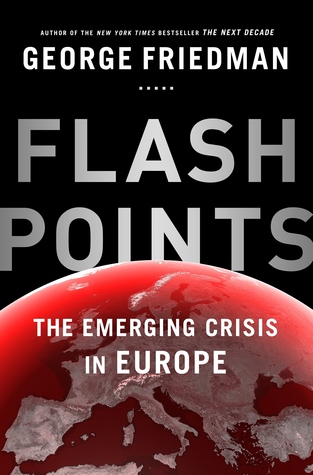More on this book
Community
Kindle Notes & Highlights
The EU forced the Cypriot government to freeze all bank accounts and seize assets worth more than 100,000 euros in individual accounts. Just under half the money seized was never returned, but was converted to shares in banks that were nearly insolvent.
While 100,000 euros is a lot of money, it is not so much that a private citizen couldn’t have saved it for retirement or sold a house and deposited the proceeds. In reality the EU was seizing money from ordinary citizens, from many local Cypriot
The Cyprus government used the money to pay European banks holding Cypriot paper.
The European banks got paid, but at the cost of severely damaging the Cypriot economy and smashing the lives of ordinary Cypriots. To date, much of the confiscations have not been rescinded.
The Germans pressed the confiscation because they needed to send a message about the dangers of defaulting, but without actually hurting a major European country. They couldn’t do this to Spain or Greece or Hungary because those countries would refuse to cooperate, and the Germans couldn’t afford a threat to the free-trade zone.
Through Cyprus the EU delivered a message, demonstrating its ability to compel actions that ran against the obvious interest of the country.
The fact is, most of the elites did not have their net worth in savings accounts. The impact of their decisions was greater on the middle class and small businesses that had a large part of their net worth in banks.
The EU’s strategy was to make not Cyprus but the middle class pay those debts.
Some of these radical parties will be on the Left, but the most powerful ones will be on the Right because they will exploit anti-immigrant feeling.
The Ottomans built their power on Christian-born soldiers.
The dependence on Christian-born troops to maintain the Ottoman Empire is closely linked to another fact: every Ottoman sultan, save Osman, the founder, was born to a mother who had not been born a Muslim but had converted to it. These were both ways to hold together a diverse empire.
For all the secularism of Europe, Europe is still the place where Christianity is the religion to reject. To rebel against religion requires that there be a religion to rebel against. In Europe it is for the most part Christianity. Turkey is the place where secularists reject Islam. This has not proven to be a bridge between the two, but a barrier. The underlying religion, declared to be obsolete and dying, still defines both places.
In some sense, the military is the most modern part of a developing country. Its social organization and technology can make it the most advanced institution,
They may also prove the rule that all nationalism doesn’t need to be driven by hatred of the other, as much as by love of one’s own.
Europe has lost its former place in the world. It is still a commercial power, but commerce, part of what some Europeans call “soft power,” depends on national security—the ability to use the oceans and air freely, the willingness of others to allow you to trade, security for your investments overseas.
Being rich and weak is a dangerous combination.
Europe therefore lives in a world with wolves. Some are already out there. Others are emerging. Individual countries like Germany, France, or Britain can play economically in this league, but most of Europe can’t, and even those that can have only economic power. They can’t compete with the United States, and that really is the most important thing to understand about Europe. Virtually any country that wishes to pose a military challenge can force the Europeans to try to buy their way out of the problem, ignore the problem in the hope it goes away, or capitulate, but not, at the moment, to
...more
If Ukraine allies with NATO, NATO would have come almost as far as Hitler had in World War II.
There are four Europes, and these four are fragmenting further, back to the nation-states that compose them, and back into the history they wanted to transcend.
In the end, the problem of Europe is the same problem that haunted its greatest moment, the Enlightenment. It is the Faustian spirit, the desire to possess everything even at the cost of their souls.
Today their desire is to possess everythi...
This highlight has been truncated due to consecutive passage length restrictions.
They want to be completely secure, but they don’t wish to defend themselves.
There is always a price, and nothing is more dangerous than not knowing what the price is, except perhaps not wanting to know.


